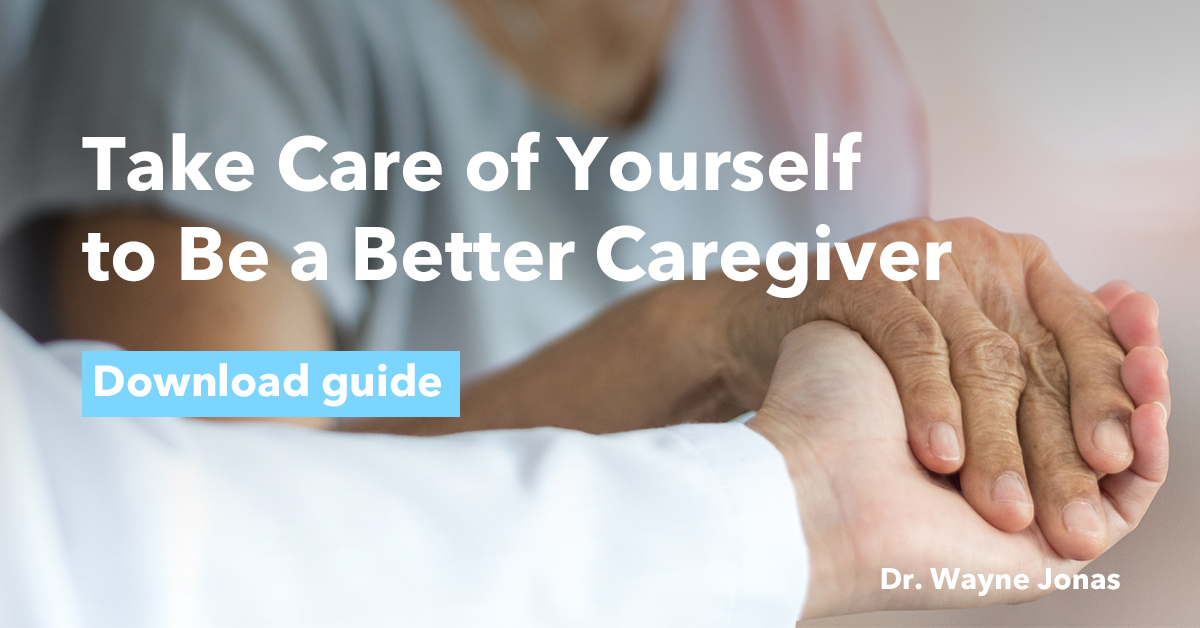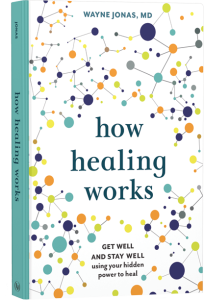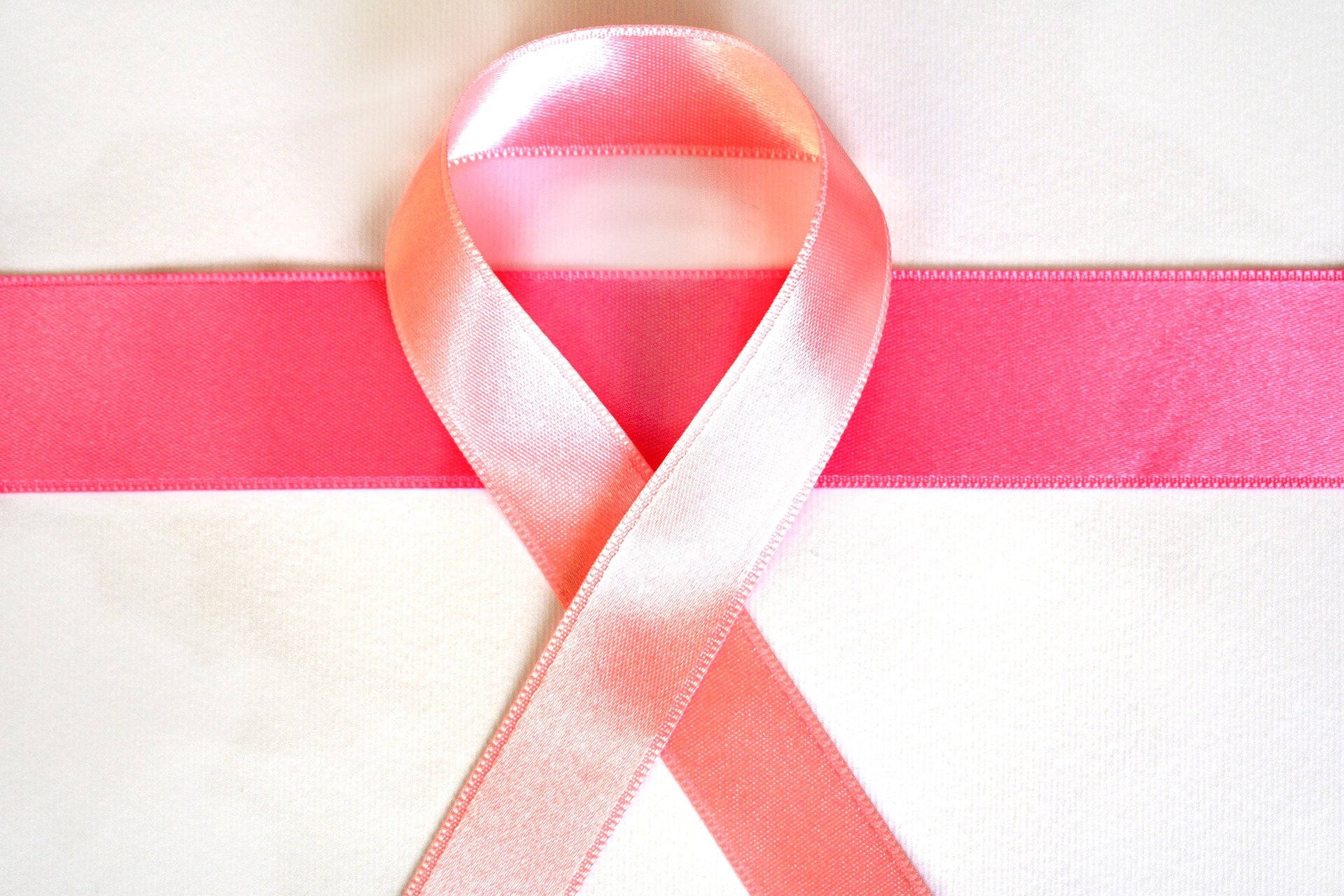Having breast cancer and getting through treatment can be the biggest challenge someone ever faces. Integrative breast cancer care—that is, care focused on mind and body practices, natural products, and lifestyle changes in addition to your conventional treatment— can help you on your healing journey by:
- Activating your ability to heal
- Helping you feel better physically and emotionally
Why integrative breast cancer care? Evidence shows that integrative breast cancer care helps:
- Relieve cancer symptoms and treatment side effects
- Minimize anxiety, stress, and depression
- Boost your overall sense of well-being
Here are 10 complementary and lifestyle approaches, which can be used as part of integrative breast cancer care. All of these approaches should be used along with, and never instead of, conventional cancer care, and should be incorporated into treatment through close coordination with a doctor. We’re confident that cancer patients who safely adopt these approaches into their healing journey will feel the immediate and long-term benefits.
1. Acupuncture and Acupressure
What is acupuncture?
Acupuncture involves inserting very thin needles through the skin into specific points on your body to help stimulate energy flow. Acupuncture is part of traditional Chinese medicine, which maintains that energy (qi) flows through pathways (meridians) in the body. To re-balance energy, acupuncture needles are inserted into specific points along these pathways. Acupuncturists, doctors, and other health care providers do acupuncture.
What is acupressure?
Like acupuncture, acupressure stimulates energy flow throughout your body and is part of traditional Chinese medicine. Instead of needles, hands and fingers or a special device are used to stimulate energy flow. A therapist can do acupressure or you or a family member or a friend can do it.
What symptoms and treatment effects does acupressure help during treatment?
- Fatigue
- Nausea and vomiting from chemotherapy
- Pain
- Stress
What about acupuncture?
- Anxiety and stress
- Hot flashes
- Fatigue
- Nausea and vomiting from chemotherapy
- Pain
- Sleep problems
2. Massage Therapy
What is massage therapy?
Massage therapy is rubbing or pressing the soft tissues of your body—muscle, connective tissue, tendons, ligaments, and skin—to enhance health and wellbeing. There are many types of massage, including Swedish, Shiatsu, and deep-tissue massage. Massage therapists usually use their hands and fingers to do massage, but they may also use their forearms, elbows or feet. Massage therapy is done by trained and certified medical professionals.
What symptoms and treatment effects does massage therapy relieve during treatment?
- Anxiety and stress
- Pain
- Mood problems and depression
3. Meditation
You’ll probably need to try different types of meditation to see what works best for you and fits your lifestyle.
Mindfulness-based stress reduction is a popular type of meditation that helps you access and build your natural capacity to actively engage in caring for yourself and find greater balance, ease, and peace of mind. It includes a range of meditation practices, including a body scan, sitting meditation, walking meditation, loving-kindness practice and gentle Hatha yoga postures. Participants can practice mindfulness-based stress reduction on their own at home every day.
What symptoms and treatment effects does meditation help relieve during treatment?
- General well being (quality of life)
- Calmness
- Clarity
- Concentration
4. Music Therapy
What is music therapy?
Music therapy is the use of music to treat cancer or other diseases/conditions, reduce symptoms or prevent disease or injury. It can include creating, singing, moving to and/or listening to music. Music therapists are trained to design personalized uses of music for each patient. They are certified in music therapy. Some states regulate music therapists.
What symptoms and treatment effects does music therapy help relieve during treatment?
- Anxiety and stress
- Nausea and vomiting from chemotherapy
- Depression
- Pain
- Poor quality of life

5. Relaxation Techniques
What are relaxation techniques?
When your body is relaxed, you breathe more slowly, have lower blood pressure, and feel an increased sense of well-being. Relaxation techniques help produce the body’s natural relaxation response. You can do Relaxation Techniques on your own, or get help from a therapist or trainer.
Relaxation techniques include:
- Breathing techniques
- Progressive muscle relaxation
- Guided imagery (focusing the mind on positive images)
- Autogenic training
- Biofeedback
- Self-hypnosis
6. Yoga
What is yoga?
Yoga is an ancient mind and body practice from traditional Indian (Ayurvedic) medicine. It combines strengthening and stretching poses and deep breathing and meditation or relaxation. There are more than 100 types of yoga. Some are fast-paced and intense. Others are gentle and relaxing. In the U.S., Hatha yoga is the most common type of yoga practiced. Hatha yoga combines a series of poses with breathing. People with breast cancer should take a yoga class taught by a certified yoga instructor who has experience working with cancer patients.
How do people with cancer use yoga?
- Anxiety and stress
- Depression
- Fatigue
7. Healthy Eating
Breast cancer treatments like surgery, radiation therapy and chemo put a lot of demands on your body. Treatments and their side effects, and just having cancer, can affect the way you eat and how your body tolerates certain foods and uses nutrients. During many breast cancer treatments, you need extra calories and protein to keep your weight up and heal faster.
What does healthy eating look like for people in treatment? Each woman with breast cancer has different nutritional needs. This is a general list for healthy eating during cancer care, which can be adapted into your diet with the help of a doctor.
- Try to eat lots of vegetables and fruit
- Eat moderate amounts of whole grains, and plant protein like nuts, beans, lentils, tofu, and tempeh
- Eat moderate portions of fish, poultry, lean meats, and nonfat or low-fat dairy foods
- Limit the amount of high-fat foods you eat, especially those from animal sources. Choose low or no-fat dairy products. Bake or broil foods to reduce fat
- Limit your intake of salt-cured, smoked and pickled foods
8. Dietary Supplements
What are dietary supplements?
Dietary supplements include vitamins, minerals, herbs, or products made from plants, animal parts, algae, seafood or yeasts. They come in many forms, including tablets, capsules, liquids, teas, concentrates, and powders. The quality of dietary supplements varies. Some are made in clean, controlled laboratories and have accurate labels while others don’t have any of their harmful ingredients listed on their labels. Always talk to your doctor before using any dietary supplement. If you’re already taking dietary supplements, let your doctor know about them.
How do people with cancer use dietary supplements?
- To strengthen their immune systems
- To help with symptoms and side effects of cancer and chemotherapy
- In the hope of stopping the cancer
Discover more information here.
9. Exercise and Physical Activity
Why exercise and physical activity?
Breast cancer treatments like surgery, radiation therapy and chemo put a lot of demands on your body. Treatments and their side effects, and just having cancer, make you feel bad physically and emotionally. Each woman with breast cancer has different needs. Here’s an overview of exercise during cancer treatment in general. Your doctor or cancer care team can help you develop an exercise program that is right for you.
What are the benefits of exercise and physical activity during cancer treatment? Exercise can lessen symptoms of cancer and side effects of treatment, like:
- Anxiety
- Depression
- Fatigue
- Nausea
- Weight gain
Other general benefits of exercise include:
- Improving balance and lowering the risk of falls and broken bones
- Keeping muscles from getting weak
- Lowering the risk of heart disease, osteoporosis, and blood clots
- Helping you be more independent with your everyday activities
10. Social Support
What is social support?
Social support is now usually considered mainstream cancer care, not integrative medicine. The Society for Integrative Oncology and other experts say there is a strong evidence base for social support. An optimal healing environment includes social and professional interactions that foster a sense of belonging, well-being, and coherence are healing relationships. Nurturing healing relationships is one of the most powerful ways to stimulate, support, and maintain wellness and recovery.
Social support from family and friends might mean practical help—rides to and from treatments, help with grocery shopping or cooking, help taking care of your kids, help cleaning at home—or support groups like talking groups, art therapy groups, meditation groups, counseling, or online communities.
How do people with cancer use social support? Social support can:
Reduce:
- Anxiety and stress
- Mood and depression
- Fatigue
- Pain
Improve:
- Stress
- Mood
Integrative breast cancer care can be a great way to relieve cancer symptoms and treatment side effects; to minimize anxiety, stress, and depression; and to boost your overall sense of well-being. Through the help of your doctor and coordination with your cancer care team, you can add integrative care to your individualized treatment plan by adopting this list of safe, evidence-based complementary and lifestyle approaches into your routine. This doesn’t mean refusing conventional medicine; it means incorporating integrative approaches into your conventional cancer treatment.
For more information about, see the 10-Step Guide to Integrative Breast Cancer Care.
 Your Health Into Your Own Hands
Your Health Into Your Own Hands
Drawing on 40 years of research and patient care, Dr. Wayne Jonas explains how 80 percent of healing occurs organically and how to activate the healing process.

